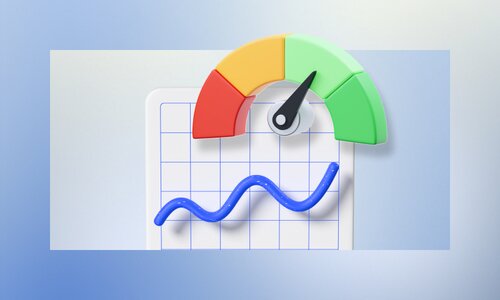Being self-employed has its perks. You have the freedom to design your business on your terms. And that doesn’t have to stop with your working hours. Self-employed people may not have access to a company-sponsored 401(k) plan, but that doesn’t mean you’re locked out of retirement planning. You’ve got options like the SEP IRA.
Here’s how it works.
What Is a SEP IRA?
A SEP IRA, or a Simplified Employee Pension Individual Retirement Account, is an individual tax-advantaged retirement account for anyone self-employed, owns a business, employs others, or earns a freelance income. SEP IRA contributions typically grow tax-deferred until retirement, following which the distributions are taxed as income. There is also a Roth option, which enables after-tax contributions that are then allowed to grow tax-free into retirement.
Any contributions you make to the SEP IRA are treated as employer contributions. Whether you’re a small business owner with employees or a solo professional with a freelance business, the SEP IRA is designed to simplify retirement savings.
SEP IRAs also have higher annual contribution limits than traditional IRAs.
How Does a SEP IRA Work?
What makes the SEP IRA an attractive option for many business owners is the simplicity and accessibility of the plan. Here’s what you need to know:
- Accessibility: The SEP IRA doesn’t have the start-up and operating costs of many employer-sponsored retirement plans, such as the 401(k) or 403(b). This makes it easier for smaller organizations and solo professionals to contribute to their employee accounts and their own.
- Eligibility requirements: To contribute to a SEP IRA, you must be at least 21 years old, have had at least three years of employment with the business, and have a minimum compensation of $750 for 2023.
- Flexibility: The SEP IRA also gives employers high flexibility. For example, the SEP IRA allows employers to skip contributions when business is down or struggling. Employers must, however, ensure uniform percentage contributions for all eligible employees.
- Tax efficiency: Regarding taxes, SEP IRAs are not dissimilar to traditional IRA contributions. They offer the same tax benefits and investment options and have the same rollover rules. When your business contributes to a SEP IRA account, whether yours or an employee’s, it will receive a tax deduction.
- Control over investments: With a SEP IRA, like a regular IRA, the employee has complete control over the investments they choose to put their money into, including various stocks, bonds, mutual funds, and ETFs.
SEP Contribution Limits
The contribution limits for SEP IRAs set by the IRS (Internal Revenue Service) are much higher than those for traditional IRAs. The annual contribution limit for a traditional IRA was $6,500 in 2023, with an additional $1,000 in catch-up contributions for anyone aged 50 or older.
However, the contribution limits for a SEP IRA are much higher. In 2023, that contribution limit has been upped to $66,000.
However, your SEP IRA contributions can be at most 25% of your total compensation for the year. This means that even though the SEP IRA annual contribution limit is $66,000, if you’re on a $50,000 per year income, for example, you cannot contribute more than $12,500. Similarly, if you’re on a higher income, say, $350,000, while 25% of your income works out to $75,000, you cannot contribute the full 25% since the contributions cap out at $66,000.
There are also no catch-up contributions available for SEP IRAs.
If you’re self-employed, your contributions will be limited to 20% of your net income. This is the net profit minus self-employment tax.
The withdrawal limitations on SEP IRAs are the same as those imposed on traditional IRAs: any withdrawals before the age of 59 1/2 are taxed at ordinary income tax rates with a 10% penalty for early withdrawals. You also need to take the required minimum distributions (RMDs) starting at 73.
The Pros and Cons of a SEP IRA Plan
While the SEP IRA plan is an excellent choice for most small business owners and self-employed professionals, it comes with pros and cons that you need to consider before investing your retirement savings.
Pros of a SEP IRA
The advantages:
- Allows self-employed professionals to save for retirement: With most tax-advantaged retirement plans catering to full-time employees, the SEP IRA is one of the few options for small business owners, freelancers, and self-employed professionals. Retirement planning is essential, especially for self-employed professionals who rely on the day-to-day hustle to build and run their businesses and may want to slow down or have a complete small business retirement in later years.
- Choice of tax-deferred or tax-free savings: The SEP IRA, like the traditional IRA and Roth IRA options, allows you to choose whether to defer taxes and pay them during retirement or pay the taxes now and allow your investments to grow tax-free. Tax-deferred savings are a good option for entrepreneurs and professionals in a higher tax bracket currently but foresee being in a lower tax bracket during their retirement years. Meanwhile, tax-free savings are better for people who expect their investments to grow significantly.
- Easy to set up: Opening a SEP IRA is incredibly easy. You can open an account through a brokerage that offers SEP IRA accounts. You’ll need to establish a traditional IRA, and then your business can deposit SEP contributions to that account. Alternatively, some financial institutions will need the account labeled a SEP IRA before allowing contributions.
- Higher contribution limits: The SEP IRA contribution limits are higher than traditional IRA or Roth IRA limits, allowing for far greater yearly savings. If you’re an independent professional seriously considering upping the game on your retirement savings, the SEP IRA can be a relatively simple way to accomplish this goal.
- Flexibility: With the SEP IRA, you’re not required to contribute to the SEP IRA every year for yourself or your employees. During years when your income is low, you can choose not to contribute retirement benefits at all.
Cons of a SEP IRA
There are also some disadvantages to opening a SEP IRA.
- Employees must have equal contributions: If you’re a small business owner with one or two employees, you may want to prioritize your retirement investments over your employees. However, the SEP IRA does not allow for preferential contributions, even for business owners. Since the SEP IRA is an employee-only contribution, you must contribute the same percentage of employee compensation to the employee’s SEP IRA that you do for yourself. If you’d like to facilitate employee contributions, consider a SIMPLE IRA, which allows employees to contribute through elective deferrals.
- No catch-up contributions: If you’ve left your retirement planning for later years, traditional 401(k) and IRA plans allow catch-up contributions for people aged 50 and above. This is not, however, the case with SEP IRAs. The higher overall contribution limits, however, can offset this.
The Bottom Line
It’s never too early or too late to plan for retirement. However, as a small business owner, self-employed professional, or freelancer, the options for retirement planning can be limited. The SEP-IRA can be an excellent tool if you’re getting serious about your retirement planning.
Looking to broaden your investment portfolio? Arrived can help. At Arrived, our mission is to provide financial freedom for everybody. Through our platform, you can purchase shares of rental properties for as little as $100 and start building a portfolio — and a rental income — today.
Looking to broaden your investment portfolio? Arrived can help. At Arrived, our mission is to provide financial freedom for everybody. Through our platform, you have the opportunity to purchase shares of rental properties starting at $100.The opinions expressed in this article are for general informational purposes only and are not intended to provide specific advice or recommendations for any individual or on any specific security or investment product. The views reflected in the commentary are subject to change at any time without notice. View Arrived’s disclaimers.








